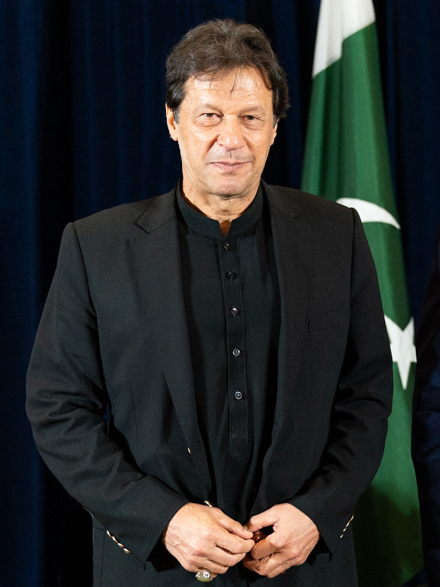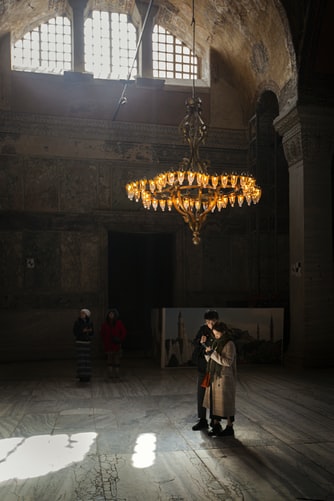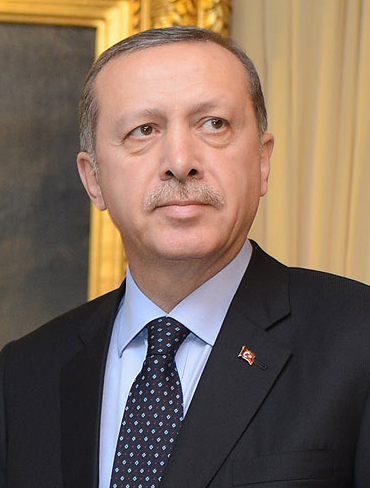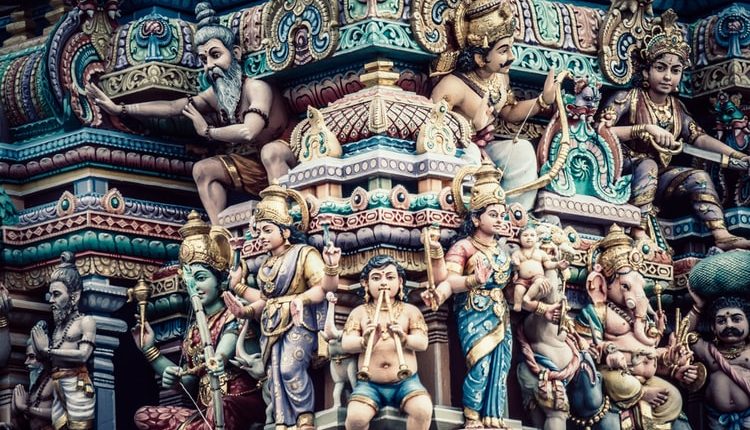New Delhi: Interfaith relationships have an invisible directive to generate a mutually beneficial co-existence among the people involved, but this is not happening everywhere, and thus shatters the values of life while whipping up turmoil in both body and mind that then leads to intra-religious violence, and the throttling of the freedom of conscience.
The recent reversal of the Pakistani government’s go-ahead for the construction of a Hindu temple in its capital, Islamabad (June 25th), in but one example of this.
A plan initially approved in 2017, it saw Prime Minister Imran Khan direct his government to provide 1.3 million US dollars towards its construction with a view to stamp on it his country’s mark as religiously tolerant.

The joyous mood of Pakistani Hindus (the largest minority in Pakistan) turned dark, however, when Muslim clerics ramped up their attacks on the idea, and mounted pressure to eventually force the Pakistani government to order a halt to construction on the pretext that the temple’s blueprint had yet to be fully approved.
While Pakistan’s Punjab Assembly Speaker Chaudhary Pervaiz Elahi termed the temple-construction (on July 1st) as ‘against the soul of Islam’, the Muthahida Ulema Board Chairman Ashrafi (quoting from Islamic Sharia law) said that ‘To have their own place of worship and offer a life as per their faith and tradition are the right given to all non-Muslims (under) the Constitution and as well as in Sharia’.
This particular Sharia tenet was not considered by the fanatics’ evidenced religious bias.
A report compiled by Pew Research Center (2013) titled, ‘The World’s Muslims: Religion, Politics and Society’ says that “many Muslims also say it is their religious duty to convert others to Islam”.
Such notions have always been detrimental to the health of a society.
The policy of persuasion has never shown beneficial results, but the acts of force and violence by religious fanatics have been worse.
The sages and seers of human history have always advocated softer remedies to counter rising hatred between conflicting religious groups, but to date, not much has been achieved.
The latest court order to restore the 1500-year-old structure of Hagia Sophia (pronounced as Ayasophia) Museum in Istanbul in Turkey into a mosque has sparked a verbal duel between Christians and Muslims, the echo of which is being heard worldwide.

The court order came after a petition by an Istanbul based NGO, (Permanent Foundations Service to Historical Artifacts and Environment Association), which demanded the reversal of the 1934, decree converting Hagia Sophia, (founded initially as a cathedral), into a museum by modern Turkey’s founder Kemal Ataturk.
The title deed stated clearly that the property was defined as a mosque, and its legal status, therefore, could not be changed.
The conversion has attracted strong criticism from different countries’ church and political leaders including from the U.S., and neighboring Greece, and Cyprus, who have called the decision ‘regrettable’ and fear that it would fracture already teetering relations between East and West.
In May this year, Greece objected to the reading of passages from the Quran inside the Hagia Sophia.
The Russian Orthodox Church meanwhile called it a threat to the whole of Christian civilization.

Highly-placed sources in Turkey told The Taiwan Times that Turkish President Recep Tayyip Erdoğan, though projecting himself as secular, would always address public gatherings with “my Muslim brothers” reminding non-Muslims in a subtle manner that their strength was just 0.5 per cent of the country’s total populace.
Over the last six years or so, Erdogan has shown himself to be a changed man because he has so often objected to conservatives’ calls to convert the museum into a mosque.
The majority of the Muslims in Turkey though, have not appreciated the moves for conversion, but are unable to raise a voice against the decision.
Surprisingly, neither Islamic law nor Sharia prevails in Turkey which is, by all measures, officially a secular country, although 99.5 per cent of its population are muslims.
Former Jawaharlal Nehru University, (JNU), Delhi, student, and Ankara Yildirim Beyzit University Assistant Professor (International Relations) Dr. Omair Anas says that Erdogan “should have taken into consideration the local Christian community while approving the decision of the top administrative branch of the country” and further adds that Hagia Sophia was originally built as cathedral, not as a mosque.










Comments are closed.